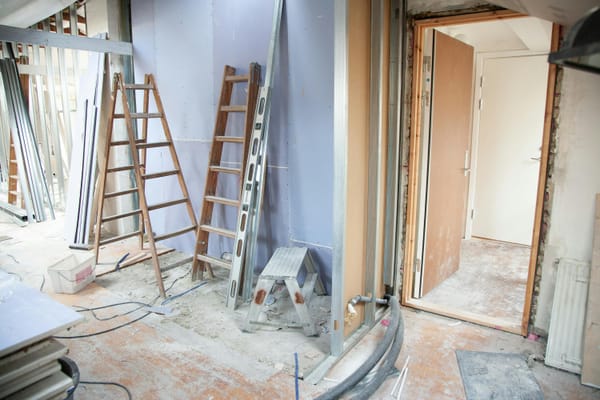Is It Better to Buy or Rent in Today’s Market? Pros and Cons Explained

For many individuals and families, deciding whether to rent or buy a home is one of the most financially significant choices they'll make. With interest rates fluctuating, housing prices on the rise, and inflation influencing living costs, the buy-versus-rent debate is more relevant than ever. The right decision depends on multiple variables—your financial situation, lifestyle, future plans, and local real estate conditions.
Whether you're a small business owner planning a live/work arrangement, a family seeking long-term stability, or a professional evaluating market timing, this guide breaks down the pros and cons of buying versus renting in today’s real estate landscape.
The Case for Buying a Home
1. Building Equity
Each mortgage payment contributes to homeownership. Over time, your equity (ownership stake) increases, offering long-term financial benefits.
- Equity can be leveraged for future loans
- Appreciating home values can build wealth
- Eventually, you own the asset outright
2. Stable Monthly Payments
With a fixed-rate mortgage, your principal and interest payments remain consistent, unlike rent, which can rise annually.
- Predictable budgeting
- Protection against inflation
3. Tax Benefits
Homeowners may qualify for deductions that reduce taxable income.
- Mortgage interest deduction (within IRS limits)
- Property tax deductions
- Potential capital gains exclusions when selling
4. Creative and Structural Control
Owning your home means freedom to renovate, decorate, and personalize.
- Remodel kitchens and bathrooms
- Paint interiors
- Landscape freely
5. Long-Term Stability
Homeownership promotes permanence and investment in your community.
- Ideal for raising families
- Encourages school district continuity
- Promotes neighborhood involvement
Drawbacks of Buying
1. High Upfront Costs
Buying a home requires a significant initial investment.
- Down payment (5–20% typically)
- Closing costs (2–5%)
- Inspection, appraisal, and moving expenses
2. Maintenance and Repairs
Homeowners are responsible for all upkeep, from small repairs to major systems.
- Unexpected costs for roof, HVAC, plumbing, etc.
- Time and money spent on maintenance
3. Market Volatility
Home values can fluctuate based on economic and local factors.
- Potential for depreciation
- Loss of flexibility in a declining market
4. Less Flexibility
Selling a home takes time, which can limit job mobility or lifestyle changes.
- Transaction timelines can exceed 60 days
- Exposure to capital gains taxes if sold too soon
The Case for Renting a Home
1. Flexibility and Mobility
Renting allows for greater freedom to relocate.
- Ideal for those with uncertain job locations
- Easier to explore different neighborhoods
- Shorter lease commitments
2. Lower Upfront Costs
Renters avoid the large down payments and closing costs required to purchase.
- Typically only first month, last month, and a security deposit
- No property taxes or title fees
3. No Maintenance Responsibilities
Landlords typically handle major repairs and upkeep.
- Save time and money on home maintenance
- Emergency repairs are usually covered
4. Access to Amenities
Many rental communities offer amenities at no extra cost.
- Gyms, pools, concierge services
- Package lockers, shared outdoor spaces
Drawbacks of Renting
1. No Equity Growth
Rent payments do not build ownership or investment value.
- Long-term renting can be more expensive over decades
- No return on monthly payments
2. Potential Rent Increases
Rents can rise due to market trends or landlord decisions.
- Budgeting uncertainty
- Can lead to displacement in competitive areas
3. Limited Control Over Space
Tenants must follow landlord rules and often cannot renovate.
- Restrictions on paint, decor, or structural changes
- Subject to landlord inspections
4. Less Stability
Landlords can choose not to renew leases or sell the property.
- Shorter tenure in a home
- Less connection to community and neighbors
Key Financial Considerations
| Factor | Buying | Renting |
|---|---|---|
| Monthly Payment Stability | High (with fixed mortgage) | Variable (can increase annually) |
| Upfront Costs | High | Low |
| Maintenance | Owner's responsibility | Landlord's responsibility |
| Tax Deductions | Yes | No |
| Equity Accumulation | Yes | No |
| Mobility | Low | High |
When Buying Makes More Sense
- You plan to stay in the area for 5+ years
- You want to build equity and net worth
- You can afford upfront costs and monthly obligations
- You're looking for long-term stability for your family or business
When Renting Might Be Better
- You're new to an area or job market
- You want financial flexibility
- You're planning a short-term stay (less than 3 years)
- You prefer not to handle maintenance or repairs
Today’s Market Factors
1. Interest Rates
Mortgage rates are higher than historical lows, but still moderate compared to decades past. Getting pre-approved and locking a rate can offer stability.
2. Housing Inventory
Low inventory in some regions drives up prices, making renting comparatively affordable in the short term.
3. Inflation and Cost of Living
Homeownership can provide a hedge against rising rents and utility costs.
4. Remote Work Trends
More people can now live farther from urban centers, opening up affordable homeownership opportunities.
Making the Decision: Questions to Ask Yourself
- How long do I plan to live in this location?
- Do I have savings for a down payment and emergencies?
- Can I handle unexpected maintenance expenses?
- What is the price-to-rent ratio in my city?
- What are my career and family plans over the next 5 years?
Final Thoughts
There is no one-size-fits-all answer to the question of whether to buy or rent. Both options offer unique advantages and potential pitfalls, and the better choice depends on your financial position, lifestyle goals, and local market conditions.
Buying offers long-term value through equity, stability, and autonomy, while renting provides flexibility and simplicity. In today’s evolving real estate market, careful planning and consultation with a trusted real estate advisor can help you make an informed, confident choice.
Whether you choose to rent or buy, understanding the trade-offs ensures that your living arrangement aligns with your financial well-being and future ambitions.



